What Are the Different Types of Pool Heaters?
Choosing the Right Pool Heater
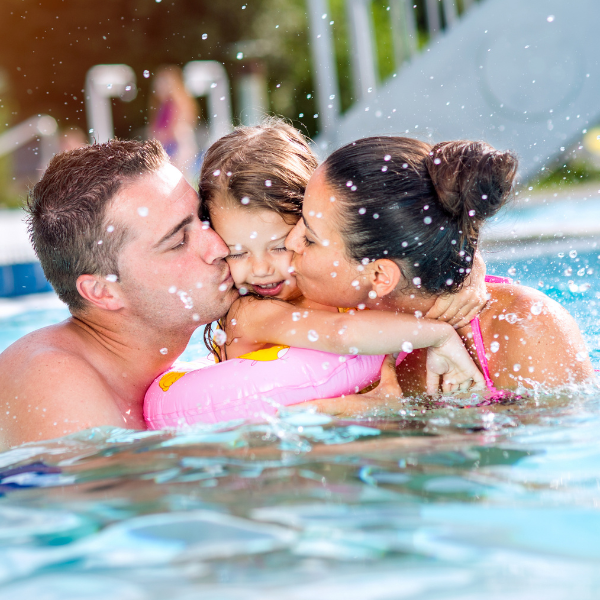
Cold water can cut pool time short. If you’re in Utah, Wyoming, or Idaho, you know evenings cool off quickly. The right heater makes your pool more comfortable and extends your season.
In this guide, you’ll see the main types of pool heaters we offer, when each one makes sense, and which brands we carry. If you’re adding a new inground pool or already have one, this overview will help you plan with confidence.
Pool Heaters Quick Guide
- Gas Pool Heaters
- Propane Pool Heaters
- Electric Pool Heaters
- In-Ground vs Above-Ground Considerations
- Costs and Sizing Basics
- EEAT: Why Our Advice Holds Up
- FAQs
- Wrap Up
- Related Reads
Start With The Answer: The Three Main Types Of Pool Heaters
There are three practical ways to heat a pool in our market: gas, propane, and electric resistance. Most homeowners choose gas for quick warmup, with the option to convert the same heater to propane when natural gas isn’t available. Electric units are available by request and should always be installed with a licensed electrician. We do not sell solar heaters.
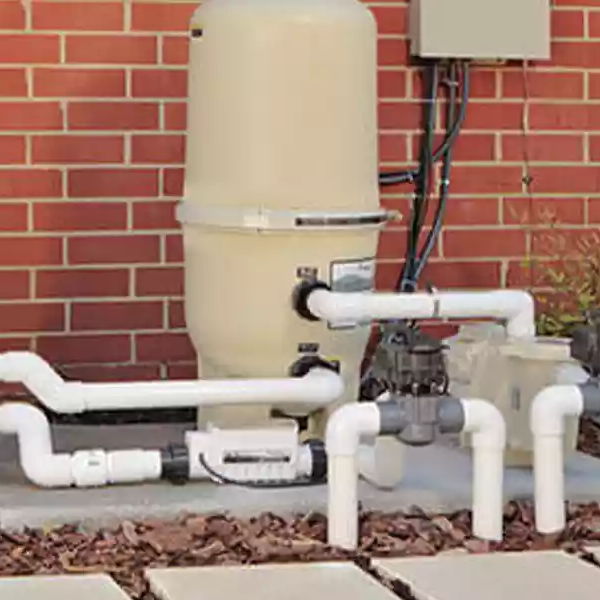
Gas Pool Heaters
Gas heaters are the most common choice for in-ground pools.
Why choose gas
- Fast warmup for weekend or evening use.
- Reliable performance even in cool weather.
- A wide range of models for inground pools.
What to know
- Most of our heaters are gas models.
- Many can be converted to propane if needed.
- Annual pool maintenance helps keep the pool equipment efficient.
Propane Pool Heaters
Propane heaters work just like gas models but use a propane tank instead of a natural gas line.
Why choose propane
- Same quick heat as natural gas.
- Perfect for rural properties without gas service.
- Easy to size and refill through a local propane supplier.
What to know
- Equipment costs are similar to gas.
- Fuel cost per BTU is typically higher, but many customers prefer the flexibility.
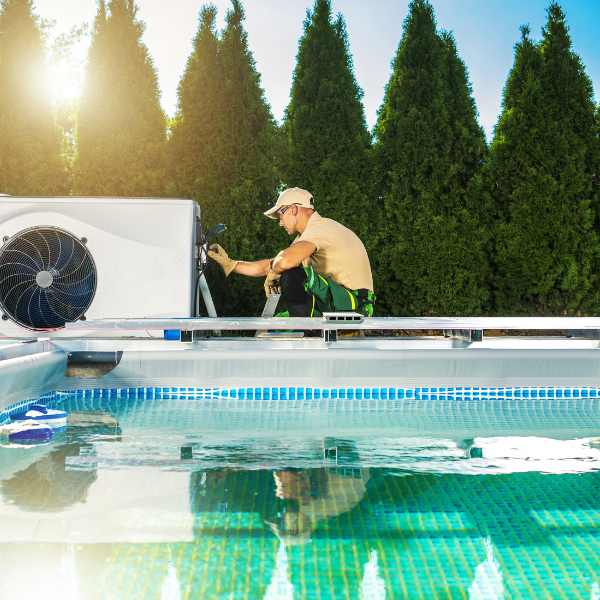
Electric Pool Heaters
Electric resistance heaters use heating elements powered by electricity.
Why choose electric
- Compact, simple design.
- Works well for small pools and spas.
- No gas line required.
What to know
- We can get electric heaters, but installation should be done by a licensed electrician.
- Larger pools may face higher operating costs with electricity.
- Regular pH testing helps protect heating elements.
In-Ground vs Above-Ground Considerations
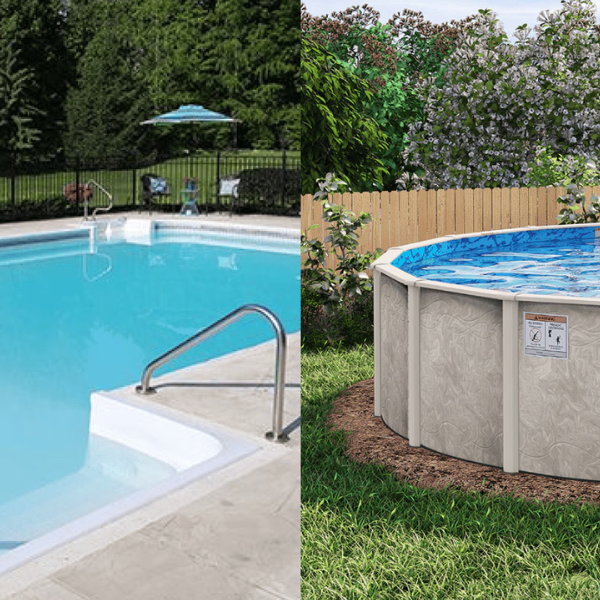
Inground pools
- Most of our heaters are designed for in-ground pools.
- Gas is the most popular choice because it heats quickly and handles larger volumes.
Above-ground pools
- Our smallest heaters can sometimes be used on above-ground pools.
- Customers are generally responsible for their own installation, since many above-ground brands use proprietary fittings that must be purchased directly from the manufacturer.
- If you choose an electric model, always involve a licensed electrician. For ongoing care, see our above-ground pool maintenance guide.
Costs And Sizing Basics
The right size and cost depend on pool volume, utility access, and how often you heat.
- Gas and propane: best for quick comfort and reliable seasonal use.
- Electric: fits smaller pools and spas but can cost more to operate on large pools.
For the best fit, we’ll confirm your pool size, location, and swim habits, then recommend a heater that balances performance and budget. Adding a pool cover can also reduce heat loss and operating costs.
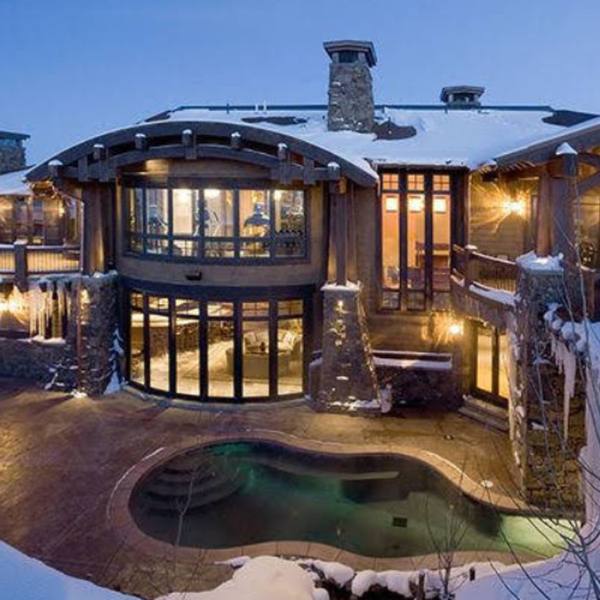
Why Our Advice Holds Up
At Intermountain Aquatech Pools & Spas, most heaters we install are gas models, often converted to propane where needed. We can supply electric heaters on request and coordinate with your electrician. We primarily sell Pentair, and we can also source Hayward, Jandy, Raypak, and Coates heaters. This range gives our customers proven, long-lasting options.
FAQs
Which heater is best for cool evenings?
Gas is the most dependable for quick warmup and steady performance when temperatures drop. If you don’t have natural gas, we can convert the same heater to propane.
Do you offer electric heaters?
Yes, by request. Electric units are compact and work for smaller pools and spas. They require proper wiring and must be installed by a licensed electrician.
Can I heat an above-ground pool?
Yes, but with limitations. Our smallest heaters can work, but fittings are often proprietary and must be purchased directly from the manufacturer. Customers are typically responsible for above-ground installs.
Do you sell solar heaters?
No. We focus on gas, propane, and electric options that perform consistently in Utah, Wyoming, and Idaho climates.
Which brands do you carry?
We mostly sell Pentair. We can also get Hayward, Jandy, Raypak, and Coates, depending on what best fits your pool setup.
Make The Season Yours
The right heater turns your pool into a space you’ll use longer and more often. If you want quick comfort and reliable performance, gas or propane is the best path. Electric can be an option for smaller pools and spas. Ready to explore options? Reach out for a free home consultation and estimate today.
Related Reads
- Getting Your Pool Ready for Summer
- Cleaning Your Swimming Pool
- Accessorizing Your Pool
- In-Ground vs Above-Ground Pools
- Services and Repairs
- 5 Things To Know Before Building A Custom Hot Tub - December 16, 2025
- What Are the Different Types of Pool Heaters? - September 18, 2025
- What Equipment Do I Need for a Swimming Pool? - August 11, 2025
